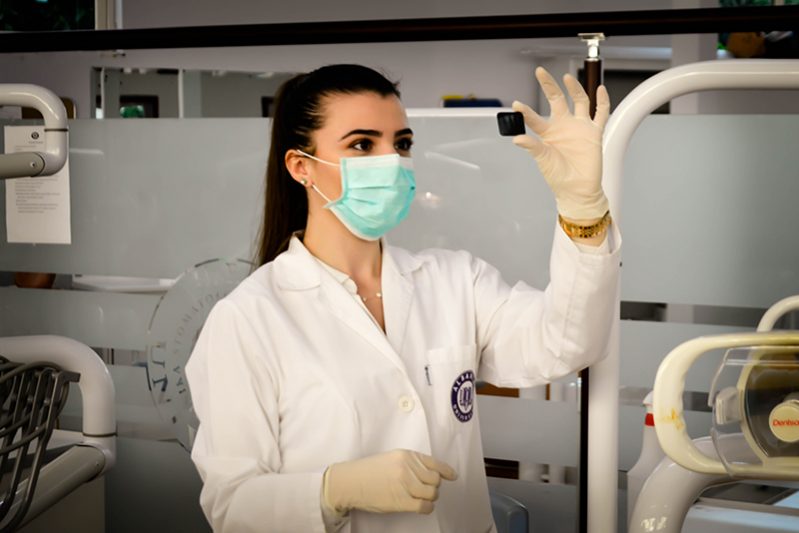BO-112 is an immunotherapy developed in Spain, which during the first clinical phase has proven to be safe. It doesn’t show any severe side effects and preliminary data show it controls the illness in five out of ten patients. Iván Márquez Rodas, oncologist at Hospital General Universitario Gregorio Marañón, is the co-leader of this project.
If I told you BO-112 could revolutionize the future of “made-in-Spain” immunotherapy you might understand very little or nothing at all about what you’re being told. Nevertheless, if I explained to you that doctors from Hospital Gregorio Marañón and Clínica Universidad de Navarra are getting the defenses of people with certain tumors to activate and neutralize the dissemination of the illness, I might be able to capture your attention. Maybe even more if I told you this drug –BO-112– was created and developed in our country. This is the first immunotherapy totally developed in Spain.
The origin of this record-time achievement –a drug takes in average 10 years to get to the market– can be found in one of the labs at Centro Nacional de Investigaciones Oncológicas (CNIO) (National Center of Oncology Research), where the team of researcher Marisol Soengas found a molecule that could activate the defenses of people with melanoma and fight the tumor. BioncoTech –a spinoff– was born from this important finding. It is a new company that has committed to turn this discovery into a drug that can save patients with cancer for whom current immunotherapy treatments aren’t working.
“We know that between 30% and 40% of patients don’t respond to nivolumab or pembrolizumab, drugs which activate anti PD1 antibodies, and the ones with the best effects on cancer cells,” explained to LA RAZÓN Iván Márquez Rodas, oncologist at Hospital Gregorio Marañón and lead researcher of the study.
One of the main keys of this new approach is that BO-112 is directly injected into the tumor, it’s like the patient was given a “vaccine” so her immune “army” can attack from within. Thanks to this formula a large amount of this drug can be concentrated into a small dose,” explained the expert. The success of BO-112 lies within the cancer. “Many cells of the immune system are kept inside the tumor but it finds a way to inhibit them so they don’t act against it. What we do is to apply an “in situ” vaccine and we reactivate those defenses”.
What they’ve recently shown at this first phase is the most important thing in a clinical trial: its safety. “We’ve observed it doesn’t produce any severe side effects,” added the expert. Except for the situation with one patient whose platelets –cells responsible for coagulation and stopping hemorrhages– decreased too much during the first day she was given the shot, “fortunately she recovered immediately,” no more problems have been detected except for “a slight local reaction at the shot area or a slight flu-ish sensation during the first days.”
This study consisted of 28 patients with solid tumors and with the initial goal to establish the safety profile and its potential as an immunotherapy since it’s important to prove that this new drug can effectively replace those already in the market.
The group of patients to whom current therapies aren’t working include patients with lung cancer, melanoma or kidney cancer for which BO-112 is capable of controlling the illness in 58% of cases, and produce an objective reduction of the tumor size in about 17%; “although these results must still be considered as preliminary,” according to Márquez.
Ignacio Melero, immunologist at Clínica Universidad de Navarra and CIMA, insists this is a pioneering study that combines local and systemic immunotherapy. “The approach aims to convert some of the tumor lesions into an immunogenic tissue that triggers an immune response that helps the immune response throughout the rest of the organism”. “We’ve been able to show in animal models that the treatment with this dual approach is synergic and these preliminary data from the clinical trial indicate a similar situation can arise with patients. There are several drugs that use this “in situ” vaccination strategy but BO-112 is probably the most potent one,” Melero states.
The group of researchers will go on with the study until they have at least 30 patients treated with a combination of BO-112 and anti PD-1 anti-bodies (nivolumab or pembrolizumab), with other Spanish centers joining in during this phase. “For the time being, we’ve recruited 19 patients and we’ll get to 30 by the end of the year,” reports oncologist Márquez Rodas. However, we also have to “look at the biopsies of patients and their analytics to prove its efficiency. There’s a lot of competition and we’ll see you effectiveness of BO-112 when we remove randomization from the equation.”
https://www.larazon.es/sociedad/una-vacuna-contra-el-cancer-made-in-spain-CF21244677
Date: January 4th, 2019
By: Belén V. Conquero






